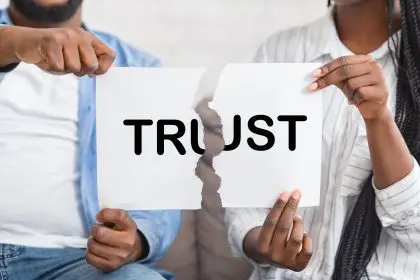In today’s complex dating landscape, one of the most heartbreaking scenarios involves giving your complete loyalty and commitment to someone who refuses to close the door on other possibilities. This emotional imbalance creates a devastating dynamic where one person pours their entire heart into a relationship while the other maintains a carefully curated roster of alternatives.
The pain of this situation runs deeper than simple rejection because it involves the slow realization that your unwavering devotion is being taken for granted. While you’ve mentally and emotionally committed yourself entirely, they continue shopping around for something potentially better, treating your relationship as just another option rather than their chosen priority.
Understanding these warning signs becomes crucial for protecting your emotional well-being and ensuring that your loyalty isn’t being wasted on someone who views you as disposable. Recognizing when someone is keeping their options open while accepting your complete devotion can save you from months or years of emotional investment that will never be reciprocated.
1. Their social media behavior raises constant red flags
Modern relationships often reveal themselves through digital footprints, and someone keeping options open typically maintains an active presence designed to attract attention from potential alternatives. Their social media activity feels deliberately crafted to appear single and available rather than committed to your relationship.
They continue posting attractive photos without any indication of being in a relationship, actively engage with comments from potential romantic interests, and maintain connections with people who clearly have romantic intentions. Their online persona suggests availability rather than commitment, treating social media as a platform for continued romantic prospects.
Meanwhile, your own social media likely reflects your commitment to the relationship. You post couple photos, mention them in your stories, and make your relationship status clear to the world. The stark difference in how you each present yourselves online reveals the imbalance in your levels of commitment and emotional investment.
2. Future conversations remain deliberately vague
When someone has genuinely chosen you as their person, they naturally include you in future planning and express excitement about shared experiences ahead. They make concrete plans that extend beyond the immediate future and discuss long-term goals that involve your continued presence in their life.
Someone keeping options open maintains strategic vagueness about future plans, avoiding conversations that might suggest long-term commitment. They deflect discussions about upcoming holidays, special events, or significant milestones with noncommittal responses that leave room for other possibilities to emerge.
This avoidance extends to practical matters as well. They resist making plans that would require canceling or disappointing other potential interests, keeping their schedule flexible enough to accommodate better opportunities should they arise. Your attempts to solidify future plans are met with hesitation or postponement tactics.
3. They maintain suspicious connections with past relationships
While healthy people can maintain appropriate friendships with former partners, someone keeping options open often maintains relationships with exes that cross appropriate boundaries. These connections serve as backup plans or potential rekindling opportunities rather than genuine platonic friendships.
They continue engaging in private conversations with former romantic partners, meet with exes for one-on-one activities, and maintain emotional intimacy that would be inappropriate for someone in a committed relationship. When questioned about these connections, they become defensive or dismissive, suggesting that your concerns are unreasonable.
The energy they invest in maintaining these past connections often equals or exceeds the effort they put into your current relationship. You begin to feel like you’re competing with their romantic history rather than being their clear priority for the future.
4. Your relationship lacks public acknowledgment
Someone who has chosen you wants the world to know about your relationship. They introduce you to important people in their life, include you in social gatherings, and make your connection known to friends, family, and colleagues. Your relationship becomes an integrated part of their social identity.
When someone is keeping options open, they maintain a careful separation between your relationship and the rest of their life. They avoid introducing you to significant people, make excuses for not including you in social events, and present themselves as single or available in professional and social contexts.
This compartmentalization serves their need to appear available to potential alternatives while maintaining access to your emotional support and companionship. You exist in a separate sphere from their “real” life, making it easier for them to explore other options without complications.
5. Communication patterns reveal their divided attention
Authentic commitment creates natural communication patterns where both people prioritize staying connected throughout their daily lives. They share experiences, check in regularly, and make each other feel like important parts of their everyday existence.
Someone keeping options open maintains communication patterns that suggest divided attention and emotional energy. Their responses lack enthusiasm and depth, conversations feel rushed or distracted, and they’re often unavailable during times when committed partners would naturally connect.
You might notice that their communication style varies dramatically depending on their mood or circumstances, suggesting that their attention toward you fluctuates based on what other options might be available at any given moment. Your conversations lack the consistency and warmth that characterize committed relationships.
6. They avoid relationship-defining conversations
Clear communication about relationship expectations, boundaries, and commitment levels forms the foundation of healthy partnerships. Someone who has chosen you welcomes these conversations and feels excited to define your connection in ways that reflect your mutual commitment.
When someone is keeping options open, they actively avoid conversations that would require them to define the relationship or establish clear boundaries with outside interests. They deflect attempts to discuss exclusivity, commitment levels, or relationship expectations with vague responses or topic changes.
This avoidance serves their need to maintain plausible deniability about their level of commitment while keeping doors open for other possibilities. They want to enjoy the benefits of your loyalty without reciprocating with clear commitment that would eliminate their other options.
7. Your intuition consistently signals something feels wrong
The human intuition often recognizes emotional dishonesty before the conscious mind processes specific evidence. When someone is keeping options open while accepting your loyalty, your instincts typically detect the imbalance even when you can’t articulate exactly what feels wrong.
You find yourself feeling anxious about the relationship’s stability, questioning their commitment despite their reassurances, and experiencing a persistent sense that you’re not their priority. These feelings arise because your subconscious mind processes subtle cues that reveal their divided loyalty.
Your intuition might manifest as discomfort in social situations, suspicion about their activities when you’re not together, or a general feeling that they’re emotionally unavailable despite their physical presence. These instinctive responses often prove more accurate than rational analysis of their behavior.
8. They demonstrate different levels of investment
Committed relationships involve reciprocal investment where both people contribute equally to building something meaningful together. When someone has genuinely chosen you, they match your emotional investment, time commitment, and effort to strengthen the relationship.
Someone keeping options open demonstrates significantly lower investment in your relationship compared to your own contributions. They contribute the minimum effort necessary to maintain your interest while reserving their best energy and attention for exploring other possibilities.
This imbalance becomes evident in how they approach conflict resolution, special occasions, and relationship milestones. They participate passively rather than actively working to strengthen your connection, treating the relationship as something that should maintain itself rather than something worth nurturing and developing.
Reclaiming your power and self-respect
Recognizing these patterns empowers you to make informed decisions about where to invest your loyalty and emotional energy. Your complete devotion deserves to be matched by someone who has chosen you just as definitively as you’ve chosen them.
The courage to walk away from someone who keeps options open while accepting your loyalty represents an act of self-respect that opens doors to authentic connection with someone who values your commitment. Your loyalty is a gift that should be treasured, not taken for granted while they shop around for something better.
Understanding your worth means refusing to compete for someone’s attention when you should be their clear choice. The right person won’t keep options open because they’ll recognize that you are the option they want to pursue with their whole heart.

















